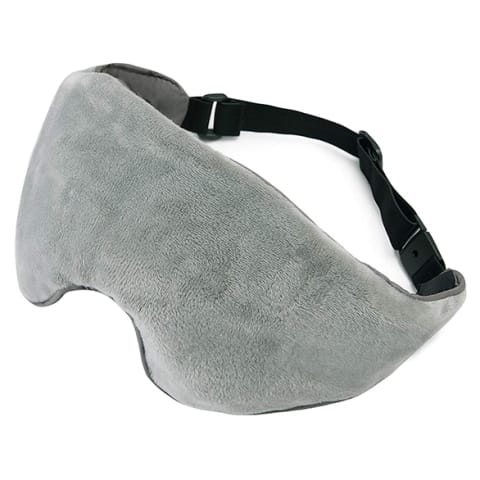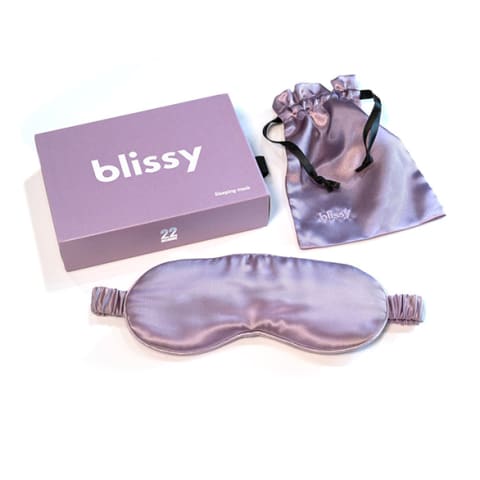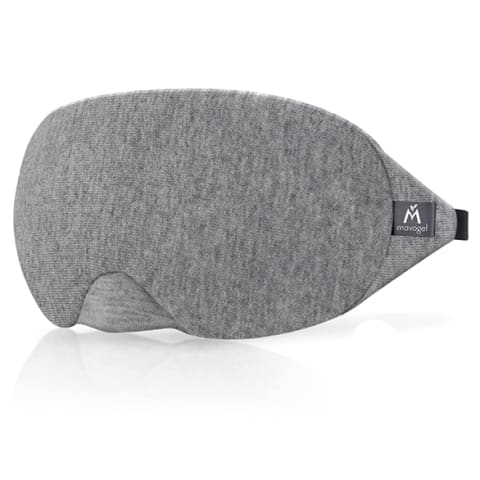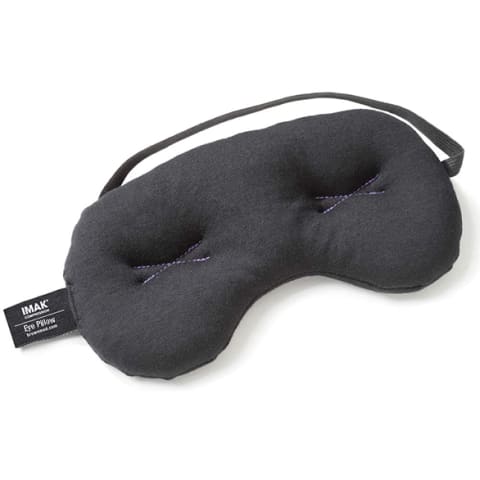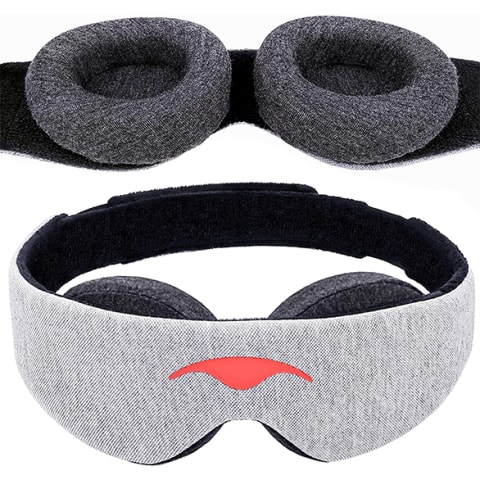“If you have light exposure at night too close to bedtime it’s almost like your brain is seeing a sunrise at a time when it should be seeing a sunset,” says Daniel Rifkin, M.D., the medical director of Sleep Medicine Centers of Western New York. When this happens, it can throw off our body’s circadian rhythm and suppress sleep-promoting hormones like melatonin, Nerina Ramlakhan, Ph.D., physiologist, sleep expert, and author of The Little Book of Sleep: The Art of Natural Sleep, explains. At this point, you may be thinking, “Isn’t that what eyelids are for?” While eyelids do promote darkness pretty well, Rifkin notes that some light can still reach the brain when our eyes are closed—especially when we sleep in bright rooms. This means it’s important to keep your sleep environment as dark as possible. Wearing a sleep mask is one way to block out any excess light that creeps into your sleep space. Those who live in cities, need to sleep during the day, or frequently travel across time zones may find them especially effective—though they’re not for everyone. Here are a few other ways to block out light in the bedroom if you find masks too restrictive. Beyond promoting better sleep quality by blocking out light, some weighted sleep masks can relieve sinus pressure and tension around the eyes. Ramlakhan adds that sliding one on can also help you draw your attention inward, withdraw from the stimulation of the day, and settle your energy before bed. She cautions, however, that sleep masks are not a cure-all and must always be paired with other healthy sleep habits. Fit is also important. Rifkin notes that masks that are too tight may restrict eye movement and impair deep sleep stages like REM. However, ones that are too loose may fall off in the middle of the night, which you also don’t want. “Light exposure in the middle of the night can fragment your sleep or promote wakefulness at the wrong time,” he notes. While sleep masks tend to come with all sorts of bells and whistles these days, the most important thing is that yours fits well and stays comfortably secure all night long or until you need to wake up. “I always say that it’s like Baskin-Robbins ice cream—there are all these flavors of masks,” jokes Rifkin. “Some people like vanilla. Some people like chocolate. I never recommend a particular one. It’s really whatever’s best for you that blocks the light and is also really comfortable.” Once you have that solid foundation of comfort and fit down, special features can be the cherry on top. Sivio Weighted Eye Mask ($14.99) Blissy Sleep Mask ($39.95) Mavogel Cotton Sleep Eye Mask ($8.49) IMAK Compression Pain Relief Mask and Eye Pillow ($13.54) Manta Sleep Mask ($35) Emma received her B.A. in Environmental Science & Policy with a specialty in environmental communications from Duke University. In addition to penning over 1,000 mbg articles on topics from the water crisis in California to the rise of urban beekeeping, her work has appeared on Grist, Bloomberg News, Bustle, and Forbes. She’s spoken about the intersection of self-care and sustainability on podcasts and live events alongside environmental thought leaders like Marci Zaroff, Gay Browne, and Summer Rayne Oakes.


